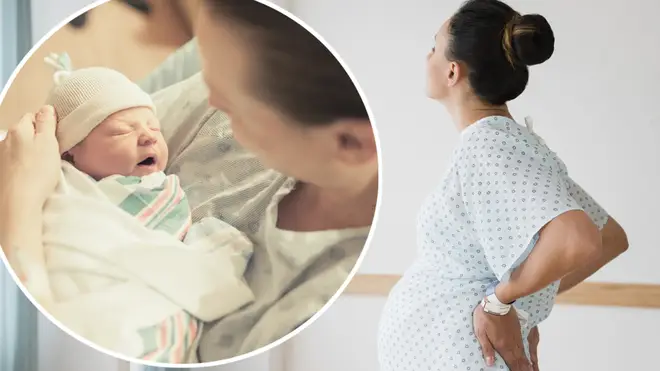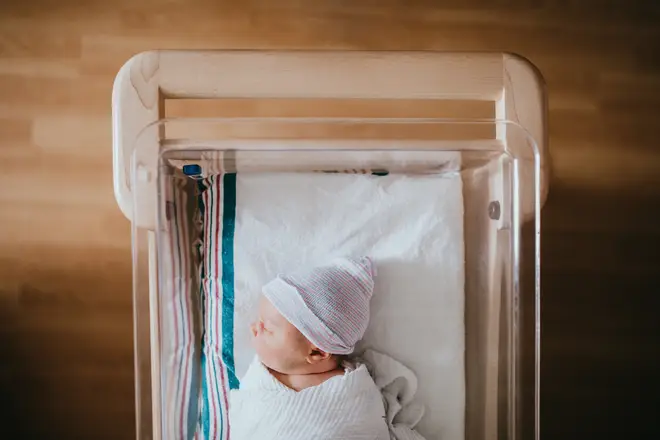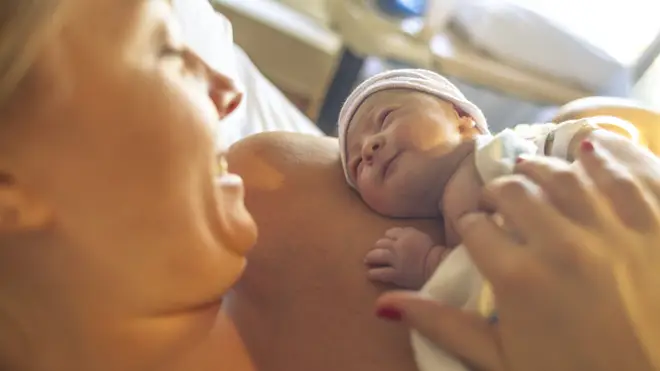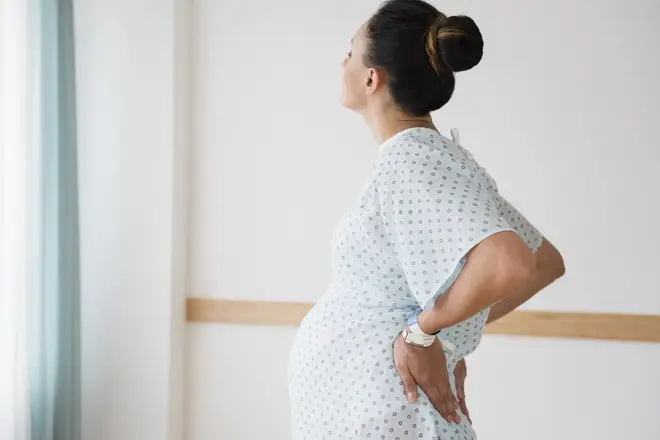On Air Now
Rob Howard and Kelly Brook 4pm - 7pm
15 May 2020, 15:18

An expert shares everything you need to know about giving birth amid COVID-19.
As the coronavirus pandemic continues across the UK, thousands of pregnant women have understandably been left concerned about what will change for them when they give birth.
'How safe will the hospital be, how long can I stay there and will my family be able to visit?' are all questions needing answers.
READ MORE: Woman demonstrates how you can make a face covering with just one sock
We spoke to Biamother expert Marie Louise, also known as The Modern Midwife, who is here to put your mind at ease:

Rest assured, maternity wards provide an essential service, so the NHS has made many arrangements to make sure that women are supported and cared for safely throughout pregnancy, birth and the postnatal period (after birth). With guidance from organisations such as the RCOG, careful consideration has been given to coordinate maternity staff in the best way possible. This includes things such as reducing staff commitments outside maternity units and any non-essential work, as well as reorganising staff.
The support of a birth partner is ever so important during labour and birth. This is widely recognised and has been studied, in fact, continuous support in labour is associated with a reduction in the need for pain relief and other intervention.
At any given time and in most hospitals, the maximum amount of birth partners women are able to have is two. This is for various reasons, but it is important for women to know that during labour they need privacy, calmness and minimal disruption. For the body and natural female physiology to work at its best, women need to be able to almost switch off the ‘thinking’ part of their brain and really go into themselves. Therefore, having too many people around can cause distraction and a disruption in the natural flow of oxytocin, which is essential for the progression of labour.
At this time, women are generally being encouraged to have a birth partner, but this has been restricted to just one person in the effort to keep everyone safe and well and prevent the spread of coronavirus. Hospitals around the country may differ but this is the current and latest advice.
After birth there are visiting restrictions in place, this may seem daunting for some mums but always remember that midwifery, obstetric and support staff are trained and are there to support the needs women have after birth. For some women, having undisturbed time with their new baby has been a really positive experience and many have also reported a real sense of sisterhood on the postnatal wards as mums are talking more to each other and bonding at this time.

The situation is rapidly evolving and advice on this may well change and vary. In general, family members living in the same household should pay close attention to hygiene and hand washing, as always. Anyone who comes into your home should take the standard hygiene precautions, including washing their hands and being very careful when it comes to handling your baby whether they have symptoms of any illness, including the coronavirus. Once government restrictions are lifted the current advice is to avoid large family gatherings, so you will need to delay celebrating your baby’s arrival until more is known about the spread of the virus.
There are no national guidelines on this but some units may have their own recommendations, so you can always ask your midwife at your next antenatal check-up. Hand washing is usually preferred to sanitiser, but if wash facilities are not available then using hand sanitiser is recommended. Depending on how you are travelling to the hospital, you may want to pack things like tissues and sanitiser.
Here is the latest guidance from NHS England:
• Wash your hands with soap and water often – do this for at least 20 seconds
• Use hand sanitiser gel if soap and water are not available
• Wash your hands as soon as you get home
• Cover your mouth and nose with a tissue or your sleeve (not your hands) when you cough or sneeze
• Put used tissues in the bin immediately and wash your hands afterwards
• If you can, wear something that covers your nose and mouth when it's hard to stay away from people, such as on public transport

It is not recommended that you give birth in a birthing pool if you have suspected or confirmed coronavirus because the virus can sometimes be found in faeces. It may also be more difficult for healthcare staff to use adequate protection equipment during a water birth. Although different units vary around the country many are still supporting water birth for women that do not have symptoms of coronavirus, but this again may change as the understanding of the virus evolves.
If all is well with both mother and baby after birth, discharge from hospital is always recommended. Some women give birth at home and never go into hospital, others will have their baby in a midwifery led unit and be going home after 6 hours. However, some will need a slightly longer hospital stay depending on the clinical needs of both mother and baby. Rest assured, if there are any concerns over the health and wellbeing of mother or baby then they will not be discharged and will receive the medical care and attention that is required. The NHS is working around the clock to offer a safe service for women and their babies. The knowledge, experience and care for women and their babies remains unchanged.
READ MORE: Bosses warned workers could be sent home if workplaces are deemed unsafe